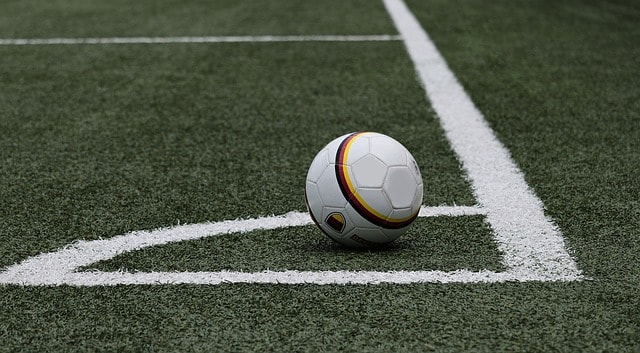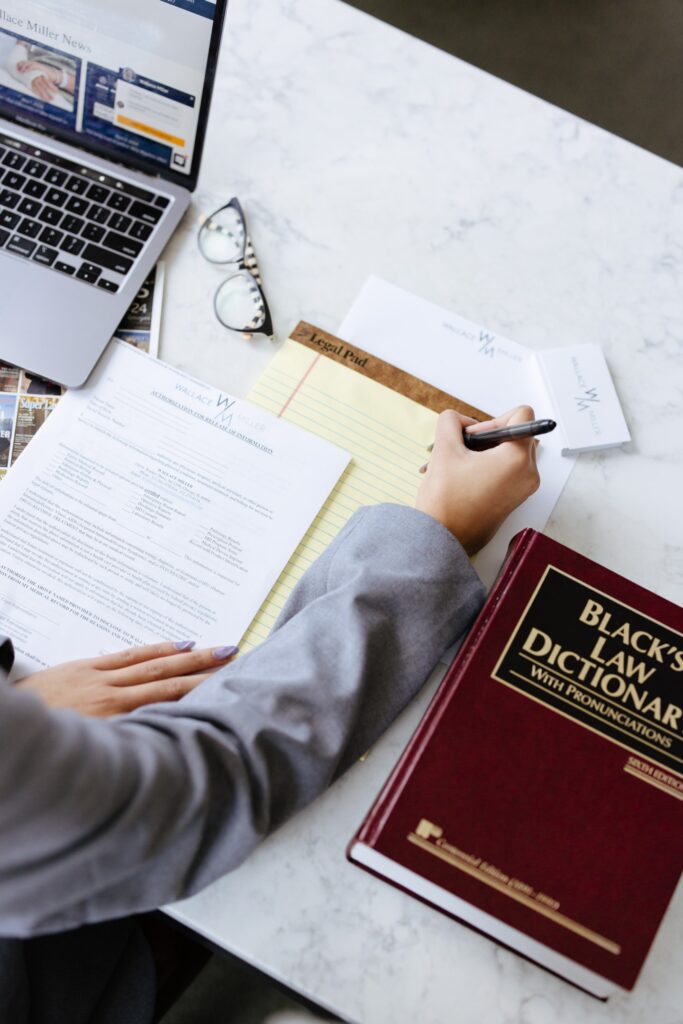Overview
Colleges and universities have a legal and ethical duty to protect their students. When sexual abuse is committed by professors, coaches, administrators, or other trusted figures, these institutions are responsible for taking action.
Sometimes, however, schools fail to meet this obligation. Many institutions mishandle investigations, disregard reports of abuse, or even conceal allegations of sexual assault. Across the country, survivors are stepping forward to hold colleges accountable for putting their students at risk.
At Wallace Miller, our Survivor Advocacy practice focuses on pursuing justice in cases of institutional abuse. If you or someone you love has experienced sexual abuse at a college or university, contact us for a free, confidential consultation. We’re here to listen, provide support, and help you understand your legal options.
RAINN operates the National Sexual Assault Hotline 24 hours a day, seven days a week. They can be reached at 800-656-4673 or via their website. Specific helplines for male survivors, members of the U.S. military, exploited children, domestic violence survivors, victims of human trafficking, and more can also be found on their resource page.

Case Team
Principal Attorney: Molly Condon Wells
Principal Paralegals: Morgan Kapping
Supporting Attorney: Alexandrea M. Messner
Supporting Paralegal: Mirena Fontana
Legal Assistant: Leena Yaqub
Survivor Advocacy: Your Legal Options After Campus Sexual Abuse
Injury
Understanding campus sexual violence
What is sexual abuse?
Sexual abuse is any act of sexual contact that someone suffers without their consent. Consent can refer to someone’s agreement to sexual acts, or to legal consent. For example, if a victim is a minor or if they are unconscious, they are not legally able to provide consent.
A wide spectrum of behaviors can be sexual abuse, including molestation, rape, unwanted sexual communications, and sharing personal images without consent. Abuse is not limited to physical acts, and may also include behavior and communication in person and online.
Abuse on college campuses
All people have a right to pursue their education without sexual harassment or abuse, and schools are legally obligated to investigate and take action on reports of misconduct. However, sexual assault at colleges and universities remains widespread, both by peers and by people in positions of authority such as coaches and teachers.
One out of five college women and one out of sixteen college men report being sexually assaulted. Across the board, more than 40 percent of people experienced at least one sexually harassing behavior while in college. Less than a third of women and less than 20 percent of men who experienced rape sought help from a program or resource.
Abuse by staff and faculty makes up a significant percentage of sexual assaults on campuses. A 2021 study published by the Journal of Public Affairs Education found that 13 percent of women in academia had suffered sexual harassment from a faculty member. The same study reported that instructors perpetrated 24 percent of the abuse of female students and 18 percent of the abuse of male students.

Who can suffer from university sexual abuse?
Wallace Miller advocates for survivors and represents individuals across a wide spectrum of experiences, regardless of age, race, gender, ability, or circumstance. While some groups are more likely to suffer abuse, anyone can be a victim. Misconceptions about the “typical” victim of sexual assault can lead to shame and isolation, as survivors may fear that people will not believe their story.
80 percent of rapes in the U.S. are committed by someone the victim knows. Many people are sexually abused by someone in a position of power, such as a teacher, coach, administrator, or group leader. Survivors in these situations may fear reprisal from the individual or from their university.
Each survivor’s story is different. We are here to listen to those who have gone through university sexual abuse, hear what they want to achieve through legal action, and fight by their side for justice and compensation.
Types of campus sexual assault
Colleges and universities are responsible for investigating claims of abuse, regardless of the identity of the perpetrator. However, some universities do not protect students and instead attempt to bury investigations and shield individuals from consequences.
Abuse by professors, coaches, administrators, and other school employees
Many of the sexual assault allegations on college campuses are made against people in positions of power. These include school faculty, sports team coaches, school administrators, staff members, and university doctors.

Abuse by peers
Sexual abuse between students takes many forms, including dating violence, acquaintance rape, and harassment. Schools are legally responsible for investigating reports of misconduct, but some attempt to keep these investigations quiet in order to preserve their reputation.
Hazing
Hazing refers to an activity that:
- is expected or required of someone intending to join or participate in a group;
- is abusive, dangerous, humiliating, or degrading; and
- occurs regardless of whether or not the individual is willing to participate.
While hazing is most well-known in the context of fraternities, sororities, and sports teams, it occurs across many groups and organizations.
Hazing can include many behaviors, from forced isolation and verbal abuse to physical and sexual assault. It can cause severe physical and psychological harm to victims and in some cases can be deadly. According to a national study, 55% of college students involved in teams, organizations, and clubs experience hazing at some point.
44 states have passed a law prohibiting hazing in some form and most schools explicitly ban hazing. If hazing is allowed to occur nonetheless, the organization and the university may be liable for failing to protect their students.

Plaintiff & Defendant
Legal options for college sexual assault victims
Individuals who have been sexually assaulted may choose to pursue a civil lawsuit, a criminal lawsuit, both, or neither. Every individual’s situation is unique, and no option is right for everyone.
Civil litigation
In a civil suit, the plaintiff seeks financial compensation for their harm. This type of lawsuit has a lower burden of proof than civil litigation—plaintiffs must prove that it is more likely than not that the defendant is responsible for their harm, rather than proving guilt beyond a reasonable doubt.
These lawsuits can hold individuals and organizations responsible for their wrongdoing and give plaintiffs the resources they need to move forward. In a successful civil litigation, the defendant will pay out damages (a monetary award determined by the courts) to the plaintiff. These may include lost income, compensation for pain and suffering, and the cost of medical bills, therapy, and mental health care.

Criminal lawsuits
A plaintiff may also choose to go through the criminal litigation system to seek justice. Criminal cases involve law enforcement and may result in fines or jail time. They also have a higher burden of proof—plaintiffs must prove beyond a reasonable doubt that the defendant is guilty of the crime.
Many plaintiffs pursue a criminal lawsuit at the same time that they pursue a civil lawsuit. Even if a criminal case is not filed or if a defendant is found not guilty, they can still be held liable in civil court.
Resources outside the legal system
Legal action may not be right for everyone. Support is also available outside of the justice system via survivor groups, support systems, counseling services, and more.
In Illinois, the IL Coalition Against Sexual Assault (ICASA) oversees a network of crisis centers that provide survivor resources, safe spaces, and legal advice. On a national level, the IDHS Sexual Assault Prevention Program offers counseling, medical support, criminal justice support, and prevention training. Groups including the National Children’s Alliance, Hope Exists After Rape Trauma (HEART), Resilience, Life Span, National Organization for Victim Assistance (NOVA), National Sexual Violence Resource Center (NSVRC), and MaleSurvivor offer support across the U.S. for those impacted by abuse.
Landscape
The legal basis of campus sexual violence lawsuits
College and university sexual abuse is prohibited by federal and state laws as well as institutional policies. The most prominent legal policy on sexual assault is Title IX, part of the Education Amendments of 1972.
Title IX covers all schools, universities, and institutions that receive federal financial assistance. It applies to anyone who interacts with these institutions, including students, employees, staff, and parents and guardians.
The civil rights law prohibits discrimination based on sex, sexual orientation, and gender identity in these institutions as well as associated programs and activities. Under Title IX, sexual violence is banned as a form of gender-based discrimination.
Sexual assault is also illegal under many state laws, though the specifics of these laws vary from state to state. Universities and colleges also typically have sexual misconduct policies that outline unacceptable behavior and the consequences for perpetrators.
Resources for loved ones: How to support survivors
Sometimes, family and friends of survivors may try to report a loved one’s assault in order to help or protect them. However, speaking on behalf of someone who has suffered sexual assault can do more harm than good. Individuals who have suffered sexual abuse often feel a loss of power, autonomy, and control, and if loved ones speak to an attorney without their permission, it can perpetuate their sense of helplessness.
Coming forward about sexual abuse at any age is a difficult and courageous decision. Survivors deserve to be believed, supported, cared for, and protected from further harm. Prioritizing their choices—whether those involve seeking professional help, contacting the police, reaching out to a law firm, or taking time to process and think through a decision—is the most important thing a loved one can do.

Q&A
How much does a sexual assault lawsuit cost?
At Wallace Miller, we know that the potential cost of a sexual assault lawsuit can be overwhelming. That’s why we operate on a contingency fee model—we don’t get paid unless we succeed in achieving a positive settlement or verdict. There is no cost to hire our team and no out-of-pocket fees.
How long do I have to file my college sexual abuse lawsuit?
Statutes of limitation—or how long after an event a lawsuit can be filed—vary by state. While many statutes of limitation are two years, some states have passed laws extending the statute of limitation for sexual abuse cases.
The specific time limit in a given case may be difficult to determine. It depends on many factors, including where the case is filed, the jurisdiction of the lawsuit, and how old the plaintiff was when the abuse occurred. An experienced sexual assault attorney can help you find out how long you have to file and make sure that you are able to file your case.
Contact
College sexual abuse lawsuits at Wallace Miller
In a college sexual abuse civil lawsuit, a survivor or their representative sues an individual, organization, or institution for the sexual assault they caused or enabled. Universities pay out millions of dollars every year in lawsuits accusing them of mishandling, ignoring, and covering up sexual assault.
The Survivor Advocacy team at Wallace Miller seeks justice and accountability through financial compensation for survivors. While no amount of money can undo the harm caused by sexual abuse, these cases can provide closure, enable survivors to move forward, and send a message to institutions that failing to address sexual assault will not be tolerated.
There are often multiple defendants in a sexual violence lawsuit. These may include the perpetrator of the assault, such as a coach, professor, or school doctor, as well as the people and organizations that failed in their responsibility to keep their campus safe. These defendants may be school administrators, school districts, universities, and others.
In these cases, the plaintiff must prove that the defendants were negligent in their supervision of staff, failed to appropriately handle complaints, failed to properly vet hires, or otherwise neglected their responsibility to students’ safety.

Speak to our Survivor Advocacy team about your campus sex abuse case
Our Survivor Advocacy practice was formed to fight for justice on behalf of sexual abuse survivors and hold the institutions that enable abuse accountable. We are here to take care of the legal side so that you can focus on healing and moving forward.
If you have questions about a potential college sexual abuse case, reach out to our team at (312) 261-6193 or fill out our online case evaluation form. Consultations are confidential, free of charge, and conducted with a trained member of our Survivor Advocacy team.


